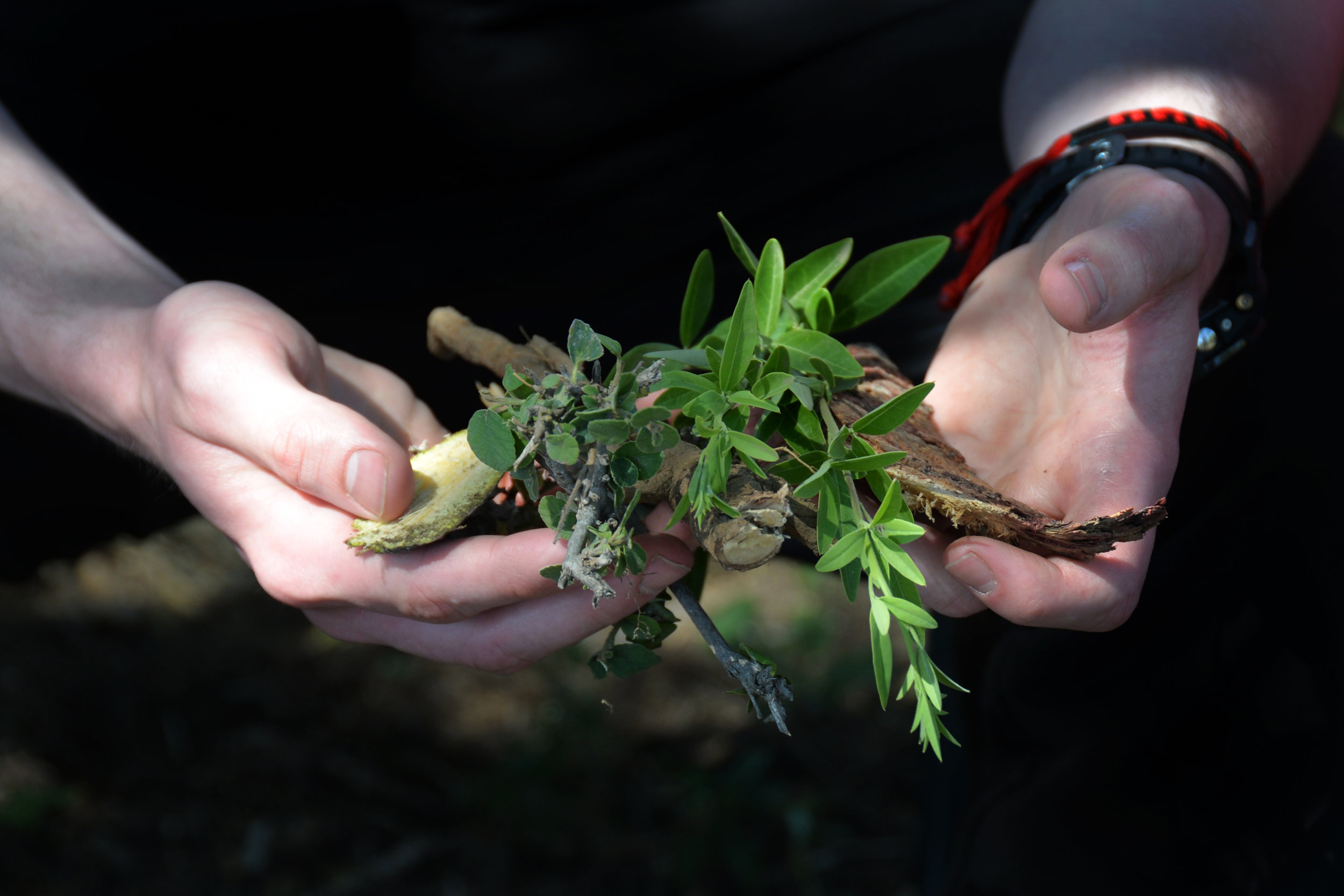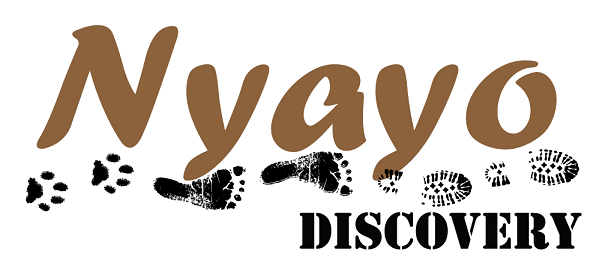
INDIGENOUS KNOWLEDGE
What is Indigenous Knowledge (IK)?
Indigenous Knowledge is a term used to refer to the large body of local knowledge held by indigenous people and includes customs, traditions, traditional ecological knowledge (TEK), group history, spiritual beliefs, cosmology and traditional language. It is commonly passed down through the generations orally (via word of mouth), usually from elder to youth. This knowledge is often viewed holistically by indigenous groups with each component being greatly inter-connected; forming the foundation of a group's identity and how they are identified by others.
The information contained in IK may include: traditions such as the proceedings of ceremonies, sacrifices and rituals; information regarding group history and origins; knowledge about the general environment (TEK) including plants and animals, their significance, uses and preparation e.g. clothing, food, medicine; a groups social and political structure; and moral code.
IK can be passed on by a number of means: through stories, fables, myths, legends, song and dance, all of which can form an important part of IK itself.
What does "Indigenous People" mean?
Trying to define Indigenous People is unhelpful and contributes to racism and racist ideas. Instead they can be identified as a group of people who were already occupying a given area before western colonisation by Europeans and the formation of modern states and borders (see UN page on indigenous peoples). They may view themselves, and be seen by others, as distinct from dominant groups in society in terms of their cultural, social, economic and political traditions and institutions. They are often linguistically distinct from the dominant culture or society too and may be associated with a particular geographic area or territory which itself might form an important part of their culture and belief system e.g. Australian aborigines from the Anangu tribe and Uluru (Ayres Rock), which is a holy place.
In Tanzania there are many people who still self-identify with a particular indigenous group but no longer occupy their traditional home-lands, speak their traditional language fluently or carry much of their group’s TEK, instead living in large towns or cities, speak the national language and adopt mainstream ideals, values and systems.
There are more than 125 distinct, self-identifying indigenous groups in Tanzania.
Tanzania is an example to the world in tolerance, respect and peace: it is one of Africa’s best examples of how strong leadership can create a culturally cohesive society with a strong national identity and relatively little inter-tribal conflict.
IK and traditional language
Traditional language plays a vital role in passing on IK and contains many words and phrases that may not be present in the official language adopted by the nation state. Traditional languages are therefore very important in giving meaning, vibrancy and nuance to this knowledge which can often be lost when translated into a different language such as, in Tanzania's case, Kiswahili or English.
Why is IK important?
IK is deeply rooted within Indigenous People’s culture and plays a major role in group and individual identity. Much of the information contained in IK is important for the security, health and overall well-being of the community and plays a central role in the decision making process, often being deeply embedded in a group’s cosmology and world view. Taken together IK and traditional language gives a group solidarity and a sense of place and self.
Globalisation has brought many benefits but has also been hugely disruptive, reducing community IK across the globe and bringing with it severe consequences for Indigenous Peoples. Loss of IK as well as traditional territories and other factors has been linked to sharp drops in physical, social and mental health, bringing about alcoholism, drug abuse, self-harm, loss of self-esteem, poverty, violence and even death.
The future of IK
IK and traditional languages are rapidly disappearing from most indigenous groups around the world. For some, much of it has already been lost.
One example from Tanzania is the Wachagga people who traditionally occupy the foothills of Mt Kilimanjaro. One of the first groups to be colonised by Europeans and have access to formal western style education they soon began to adopt the favoured language, Kiswahili, of their colonisers who were keen to use it as a tool to unite the various tribes of Tanzania under a single government. Today, most Chagga youth, like many others, move to town and speak predominantly Kiswahili as opposed to Kichagga which they no longer speak fluently.
The movement of youth to large towns in search of employment opportunities unavailable in their home villages is a common factor in the demise of IK and the use of traditional languages.
A common complaint we hear from elders is that once children become young adults they lose interest in their traditions, viewing them as "backward" or "irrelevant" preferring to follow more "modern" pursuits.
Elders fear that if young Tanzanians continue to reject their traditional practices in favour of modern ones this knowledge will be lost forever and all the tribes in Tanzania will soon become homogenised. This is a fear shared by many elders from many different groups around the world.
For a long time IK was dismissed by governments and development agencies as irrelevant to development planning. Over the last ten to fifteen years, however, there has been a surge in interest in IK, not only for its role in development implementation but in sustaining the social, physical and mental well-being of communities and their local environment.
There has been a concerted effort among numerous indigenous groups around the world to revive the use of their traditional languages and IK by implementing programs and lessons in schools - many of which have proved remarkably successful. The Arapaho of Wyoming in the U.S. are one example of a group beyond Tanzania who have started school progams to try to revive the Arapaho language and, along with it, their traditional customs and beliefs.
IK preservation Vs cultural preservationism
There are some justifiable criticisms of cultural preservation from a development perspective with anthropologists in particular often being accused of attempting to force a kind of cultural stasis on Indigenous Peoples for a western agenda and thereby creating “living museums” for westerners to come and enjoy at the expense of Indigenous Peoples themselves. The argument being that this mindset robs Indigenous Peoples of their right to determine their own futures and adapt to changing circumstances in an empowered way.
In reality cultures have always changed and adapted to their environment and social situation. What Indigenous and tribal peoples often lack or have in small amounts, is the means to assert their right to determine their own futures.
Most of the Indigenous Peoples we have worked and communicated with over the years want to hold onto many aspects of their cultures but also wish to make the most of what globalisation has to offer, not to have it forced upon them and not at the expense of their identity and way of life. It ultimately comes to down to control, who has it, when and where.
Tourism and IK
Indigenous and community-based tourism is being increasingly viewed by experts in Anthropology, Tourism, Development and other fields as a positive means to revive, preserve and promote IK and traditional language within indigenous communities.
Properly implemented, tourism can be a powerful tool to help indigenous communities hold on to their culture as they see fit as well as earning a living. It also helps youth, along with travellers to learn from elders about IK and more importantly that it has value, worth and a place in today’s world. Encouraging youth to take part in sharing this knowledge with travellers and other visitors in the form of guiding and leading discussion groups/seminars also gives them valuable transferable skills, the chance to earn a good income and builds self-esteem.
Our contribution to IK preservation
At Nyayo Discovery we are fully committed to supporting communities with IK preservation. As a result it forms an integral part of all our work, the projects we help to implement and our programs.
A significant portion of all our program itineraries contain facilitated IK workshops between the elders and youth to empower them in reclaiming and holding on to their IK and therefore their heritage. It is our hope that these workshops will reinforce the process of knowledge transmission and carry it out to the wider community, while simultaneously educating travellers about indigenous communities.
Through our projects we are also actively looking for ways to connect communities with each other within Tanzania and around the world to share knowledge, ideas, gain a global perspective on Indigenous Peoples' issues and take advantage of potential collaboration opportunities.
Thank you for reading!
